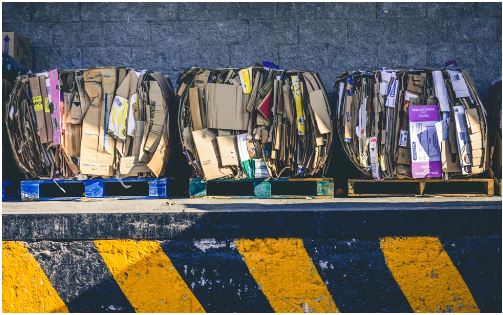
Today, industries are increasingly acknowledging the importance of sustainable practices, aiming to minimize their ecological impact and optimize operational efficiency. A pivotal component of this sustainable transformation involves adopting intelligent waste management solutions. As industries continue to expand rapidly, so does the challenge of effectively managing their generated waste. Given industrial waste’s increasing volumes and complexity, traditional waste management methodologies are no longer sufficient.
Contaminated soil, for instance, poses serious environmental risks and requires careful handling to prevent further contamination and mitigate potential health hazards. Industries dealing with hazardous materials or pollutants can benefit from professional contaminated soil removal services to ensure the efficient and safe removal of contaminated soil. Besides that, they should combine sustainable practices and innovative technologies to streamline their waste management. Here are some smart waste management solutions for forward-thinking industries.
1. IoT Integration and Connectivity
Internet of Things (IoT) technology plays a pivotal role in smart waste management. By connecting various waste management devices and systems, IoT enables seamless communication and coordination. This connectivity facilitates automated waste collection and real-time monitoring. For instance, waste bins equipped with IoT sensors can send alerts when they reach capacity, ensuring timely collection and preventing overflow. Such automation eliminates guesswork and improves overall operational efficiency.
2. Real-time Monitoring and Data Analytics
Data analytics plays a pivotal role in optimizing waste removal processes. By analyzing the collected data from IoT sensors, advanced algorithms can identify patterns, trends, and anomalies. This information helps industries understand the extent and severity of contamination and waste accumulation, enabling them to devise targeted strategies for efficient removal.
Data analytics can also facilitate predictive modeling, forecasting potential areas of contamination and allowing proactive measures to be taken. With this holistic approach, industries can not only minimize the time and resources spent on waste management but also prevent the further spread of pollutants.
3. Artificial intelligence
Artificial intelligence (AI) is an innovative technology that holds immense potential in revolutionizing waste management practices across industries. Industries can train machine learning algorithms to recognize different items based on their composition and class. This enables automated identification and sorting of waste, streamlining the separation process and reducing manual labor. AI-powered image recognition systems can detect subtle differences in soil color or texture, making the sorting process more accurate and efficient.
Artificial intelligence algorithms can also optimize transportation routes for the disposal of waste. AI can suggest the most efficient routes by considering factors such as distance, traffic conditions, and disposal site capacities, minimizing fuel consumption and carbon emissions. This will not only help reduce transportation costs but can also contribute to environmental sustainability.
Endnote
Leveraging data analytics, IoT devices, and AI technologies can streamline industrial processes, optimize resource allocation, and minimize environmental impact. Real-time monitoring and data-driven insights enable informed decision-making, while AI-powered automation and circular economy principles promote sustainability and efficiency. With these innovative solutions, industries can confidently tackle the challenge of waste management, paving the way for a cleaner and healthier future.
